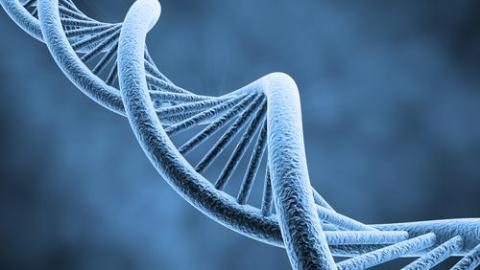Long-Ignored Genes May Hold Key to Evolution

What’s the Latest Development?
After the Human Genome Project mapped our species’ genetic code for the first time, the received wisdom held that only 1% of our DNA contained instructions necessary to encode proteins, a process essential to the functioning of cells. But the results of a new project, named ENCODE, suggest that “almost two-thirds of human DNA, rather than just 1% of it, is being copied into molecules of RNA, the chemical that carries protein-making instructions to the sub-cellular factories which turn those proteins out, and that as a consequence, rather than there being just 23,000 genes (namely, the bits of DNA that encode proteins), there may be millions of them.”
What’s the Big Idea?
Among the stores of genes now considered important to protein production are lincRNAs, which Harvard researchers David Kelley and John Rinn believe may hold a key to understanding how new species evolve from established ones. “[S]tudies of lincRNA genes from species as diverse as people, fruit flies and nematode worms, have found they differ far more from one species to another than do protein-coding genes. They are, in other words, more species specific. And that suggests they may be more important than protein-coding genes in determining the differences between those species.”
Photo credit: Shutterstock.com





